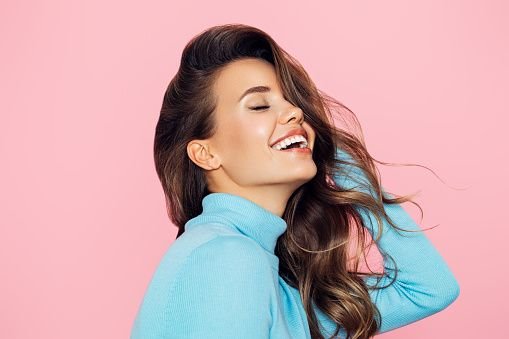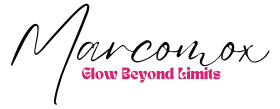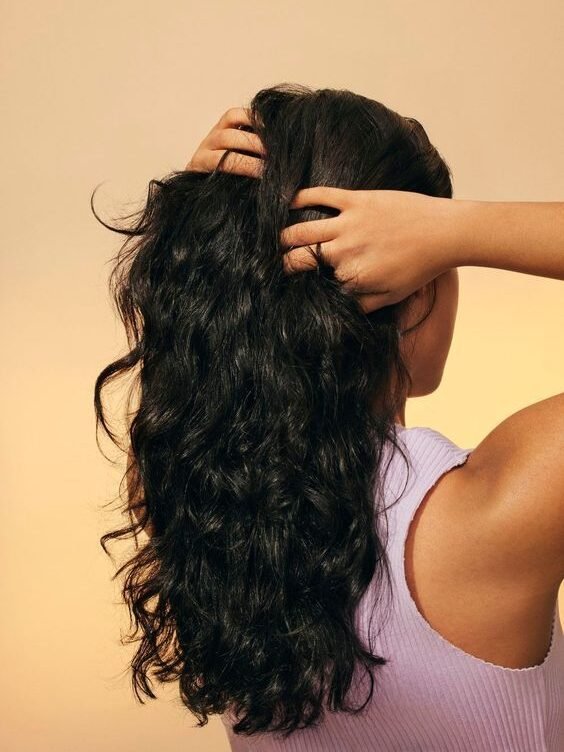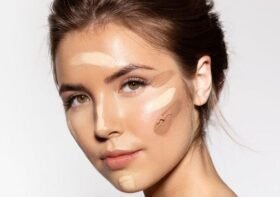Foods for hair growth and thickness- Diet for healthy hair

No matter how you wear your hair, whether in a stylish cut, long flowing strands, or natural curls. You probably want it to look as thick, full, and healthy as possible. The right diet can be a big part of maintaining strong, beautiful hair. While you can’t control everything play a role. However, one area you can control is how you nourish your hair by choosing foods rich in vitamins and minerals that help support healthy hair. It’s also good to visit a dermatologist to rule out any medical issues and talk to your hairstylist about the best products to use or avoid. Remember, hormonal changes caused by pregnancy or menopause can also affect your hair’s texture and influence how much hair you shed during activities like washing.
Our outer appearance can give us clues about our inner health, and thinning hair is often a sign that something else is happening in the body. It’s important to first look at what might be causing the hair loss and work on addressing those issues. Many possible reasons can cause hair thinning, so it’s best to talk to your doctor to test for any underlying conditions that could be contributing.
Causes of hair loss
Some common causes of hair loss include thyroid problems, autoimmune diseases, poor nutrition, high levels of stress, trauma, digestive issues that affect nutrient absorption, and hormonal imbalances.
Normally, it’s expected to lose around 100 hairs from your body every day. Hair grows in cycles, so it’s natural for some shedding. However, if you’re noticing that you’re losing more hair than usual or it seems different from what you’re used to, it’s a good idea to ask your doctor about it.
Now, let’s focus on how the foods you eat can impact the health of your hair. If you want to encourage thick, lush hair, it’s important to make sure you’re getting the key nutrients needed to keep your hair and scalp healthy.
Ways to enhance hair growth naturally
- Vitamin C plays a key role in supporting healthy hair growth, even though it doesn’t directly prevent hair loss. It helps improve iron absorption, which is crucial if you’re iron deficient. Additionally, vitamin C is essential for collagen production, which strengthens your hair.
- Stress is a common cause of excessive hair loss. High levels of the stress hormone, cortisol, can lead to more hair shedding and disrupt other hormones, especially estrogen. This imbalance can make you feel unwell and worsen hair loss. Stress also affects sleep and can cause blood sugar issues, adding to the problem.
- Imbalanced blood sugar can cause hair loss and make you feel irritable or shaky when hungry. Avoid processed sugars and simple carbs. Keep protein snacks nearby and eat regularly. Even without diabetes, blood sugar swings can affect you, so talk to your doctor if it’s a concern.
- Zinc is an essential nutrient found in meat and fish. People with digestive issues or those who don’t eat meat often lack zinc, which can lead to hair loss. Studies show it can help with hair growth, but proper dosing is key.
- Adequate protein is essential for healthy hair growth. Women need about 46 grams and men need 56 grams daily, with higher amounts for athletes, pregnant, or recovering individuals. Meat and fish are the best sources, but eggs, dairy, beans, nuts, and grains also provide protein. Eating a variety of fresh foods helps, and protein powder can assist if you’re struggling to meet your needs.
How Does Diet Affect Hair Growth? Diet plays a key role in hair growth. Hair follicles rely on nutrients to stay healthy, and nutrient deficiencies can cause poor growth and hair loss. Since hair follicle cells divide rapidly, they are highly sensitive to nutrition and toxins.
What are the best foods to eat for healthy hair?
AVACADO
Avocados are rich in nutrients that support hair health, including folate, magnesium, and vitamins E and C. Folate, a B vitamin, is essential for healthy hair, and a deficiency can lead to hair loss and changes in skin and nails. Magnesium helps manage stress, which can impact hair growth if levels are low. Vitamin E, a strong antioxidant, protects hair follicles from oxidative damage, while low vitamin E levels may be linked to hair and skin disorders. Vitamin C also acts as an antioxidant and aids in iron absorption, both of which support healthy hair growth.
NUTS
Who doesn’t enjoy snacking on crunchy, salty peanuts, cashews, almonds, and walnuts? Aside from those with allergies, these nuts are excellent sources of protein, healthy fats, biotin, and zinc, all of which support healthy tissue development on the scalp. They can stimulate hair growth and help prevent hair loss. Nut butter also offers a delicious, nutrient-dense option that provides similar hair-growth-supporting benefits. Peanuts are particularly notable for their high biotin, healthy fats, and zinc content nutrients known to promote hair growth and reduce hair loss. A ¼ cup serving contains up to 9 grams of protein, 4 grams of fiber, and a unique array of antioxidants.
Brazil nuts are especially rich in selenium, a mineral linked to improved hair growth. Just one Brazil nut can provide up to 90 micrograms of selenium, so it’s advisable to limit your intake to no more than four nuts per day. Selenium is also essential for producing thyroid hormones, which play a critical role in regulating hair growth.
EGGS
Eggs are packed with protein and essential nutrients that support hair health, including choline, iron, and vitamins A, D, and B12. They also contain lutein and zeaxanthin, which are vital for maintaining cellular health, particularly for the eyes, skin, and hair. (Tip: Most of the vitamin D is found in the yolk, so don’t shy away from eating the yellow part!)
Additionally, eggs are a rich source of biotin, a B vitamin that promotes hair growth. Conversely, a biotin deficiency can lead to hair loss. You may be at risk for biotin deficiency if you are pregnant or breastfeeding, malnourished, or have certain gastrointestinal disorders like Crohn’s disease. A study indicates that for individuals with biotin deficiency, taking a biotin supplement may help prevent hair loss.
MEAT
Protein, specifically keratin, primarily makes up hair. Consuming sufficient protein from meat helps provide the building blocks needed for strong, healthy hair. Especially red meat is a great source of iron, which is easily absorbed by the body. Iron is crucial for delivering oxygen to hair follicles, promoting healthy hair growth. An iron deficiency can lead to hair thinning and loss. It is rich in zinc, a mineral that plays a vital role in hair tissue growth and repair. Zinc deficiency can result in hair loss, so including meat in your diet can help maintain adequate levels. Particularly red meat and poultry, provide important B vitamins, including B12 and niacin. These vitamins support healthy hair growth by aiding in the formation of red blood cells and improving blood circulation to the scalp.

GINGER AND GREEK YOGURT
Ginger contains compounds called gingerols that can help reduce oxidative stress in the body. People with certain types of hair loss often have lower antioxidant levels and higher oxidative stress.
Not getting enough protein can lead to hair loss and thinning. It’s important to eat protein-rich foods with every meal and snack. Greek yogurt is a great option because it has more protein than regular yogurt.
Greek yogurt is also high in selenium and vitamin B12. Selenium helps protect hair follicles from damage, while a lack of vitamin B12 can cause hair loss. This deficiency is more common in people with conditions that affect nutrient absorption, like inflammatory bowel disease (IBD), and in those who follow a vegan diet.
Should I Take Supplements for Hair Growth?
Many factors, including diet, lifestyle, and environment, influence the health of your hair. Experts generally recommend getting your nutrients from food rather than supplements, as the body absorbs nutrients from food better.
That said, supplements can offer higher amounts of specific nutrients that might be hard to get from your diet, such as vitamin D and omega-3 fatty acids. Before starting any supplements, especially if you’re experiencing significant hair loss, it’s best to talk to your doctor.





Top 10 Hair Care Secrets That Will Leave You With Healthy Hair - Marcomox
[…] so a protein-rich diet is essential for strong hair. Aim to eat 45 grams of protein daily from foods like lean meat, fish, eggs, beans, and dairy. For healthy hair, also include zinc (found in nuts) […]
Best Hair Oils For Hair Growth - Marcomox
[…] Hair follicles are made up mostly of a protein called keratin. You might try increasing your protein intake if you want to grow your hair faster. Increasing protein might help you develop healthier […]